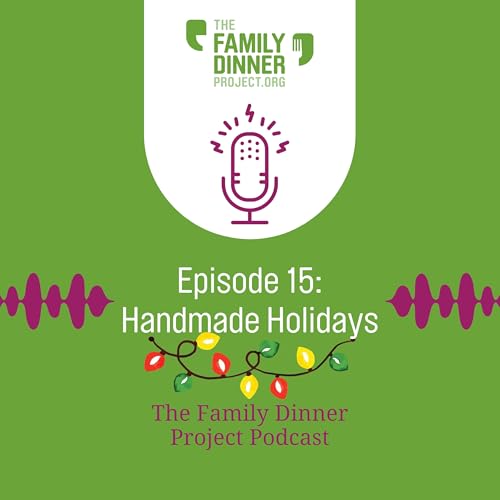On this episode of The Family Dinner Project Podcast, we invite Leslie Kimball of Responsibility.org to talk with us about the research demonstrating that family dinners can help prevent substance use, and how she and her team recommend parents and kids communicate about risk behaviors.
Bri, Annie, and Leslie delve into the findings suggesting that a routine of connected, welcoming family meals is one tool parents have to keep kids from engaging in substance use and other risky behaviors. They share strategies to help parents manage and discuss their own alcohol use, engage with other parents around keeping kids safe, and most importantly, create the kind of positive and pleasant family dinner environments that promote open communication. Packed with tips, reassurance, and ideas for food, fun, and conversation, this episode is a must-listen for any parent who wants to help safeguard their children from substance use.
Key Takeaways:
- Go to 3:00 for Dr. Anne Fishel's summary of the key research into substance use prevention and family meals
- Go to 9:10 for Leslie's thoughts on how to talk about and model responsible consumption
- Go to 16:35 for tips on making the dinner table a welcoming space for conversation
- Go to 20:05 for tips from Responsibility.org on opening up a discussion about alcohol use
- Go to 31:26 for hands-on food, fun, and conversation ideas you can use at your dinner table
Related Links:
- Responsibility.org and Ask, Listen, Learn
- What to Know About Family Meals and Substance Use with Dr. Timothy Wilens
- Episode 6:Table Trauma
- Episode 2: Is it the Family, Or the Dinner?
- Guess the Emotion
- Raggedy Ann Salad, Origami Dumplings, and Homemade Pizza
About Leslie Kimball and Responsibility.org:
Leslie Kimball is the executive director of Responsibility.org, and prior to becoming executive director, Leslie worked on the organization's programming and communications campaigns, including the Ask, Listen, Learn, and Parenting influencer programs.
Responsibility.org is a national not-for-profit that aims to eliminate underage drinking, eliminate drunk driving, and work with others to end all impaired driving and empower adults to make a lifetime of responsible alcohol choices. As part of their mission to eliminate underage drinking, responsibility.org developed a free science and evidence-based digital prevention program for kids nine to 13, their parents and educators: Ask, Listen, Learn: Kids and Alcohol Don't Mix. The program, created in 2003, helps adults start conversations with kids about alcohol and the developing brain to prevent underage drinking, and is the most widely distributed program of its kind.
Hosted on Acast. See acast.com/privacy for more information.
 Dec 22 202536 m
Dec 22 202536 m Nov 25 202534 m
Nov 25 202534 m 37 m
37 m Sep 17 202539 m
Sep 17 202539 m Jul 30 202535 m
Jul 30 202535 m Jun 4 202517 m
Jun 4 202517 m Apr 30 202538 m
Apr 30 202538 m Mar 14 202540 m
Mar 14 202540 m
